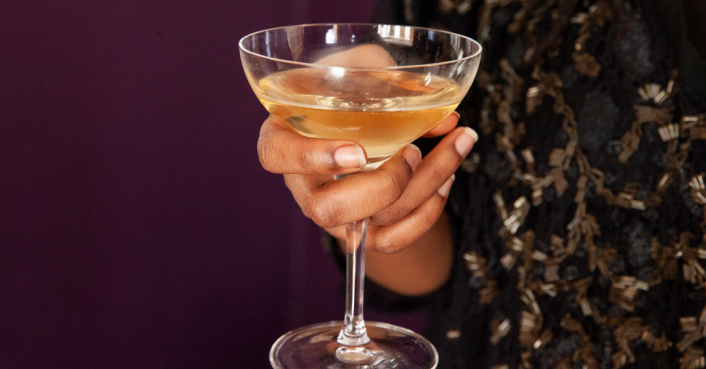Last Updated on May 19, 2023
A mom’s life is demanding and exhausting. We work endlessly to support our families with everything they desire and need. We constantly stress about everyone’s health, safety, and success.
We soothe and nurse our newborns.
We potty train and debate with toddlers to eat their meals.
We chauffeur rebellious tweenagers. The heartbreak when they experience cyberbullying and how we defend and guide them.
We coach our teenagers to drive. We take pictures of them in their first relationships. And help them follow their dreams and advanced pursuits while we prepare for an empty nest if they travel away.
Take the 3-min quizSome of us are new moms.
Some of us are solo moms.
Some are mompreneurs while others work jobs or full-time tend to the household.
Some are partners.
And many of us have the added responsibilities of tending to friends, relatives, children’s schools, and friends.
Motherhood can also become isolating and depressing.
We sprint around the clock juggling our different responsibilities.
What even is self-care?
Cutback on drinkingWhy the “Wine Mom” ?
Many of us turn to alcohol to disconnect and dampen the stress and anxiety of being parents. Alcohol is our escape and way to kick back as we enjoy some relaxation on our mommy time off. For many of us, alcohol is our harmless antidote to coping with the stress of parenting.
Sometimes, we may drink with other parents as we socialize on playdates. The “wine mom” life might seem like a fun way to connect with other adults who share our motherhood experiences—relaxing and lounging while watching our children frolic. On your playdates, does wine also tend to be the beverage of choice—the liquid therapy?
It’s initially all fun and games but have you noticed your drinking progressively increasing? What began as an innocent way for us stressed-out, overworked moms to “cheers” and pop the cork turned into a nightly wind down of two or more bottles of wine. In fact, women’s high-risk binge drinking (4 or more drinks a day) has increased by 58%.
Sometimes, being a “wine mom” helps us feel more relaxed as it pushes back against the ideals of the perfect mother who has it all together. Humor connects us and helps us ease the tension as we navigate society’s impossible standards. But to what degree does “wine mom” culture convey that the best and only way to mom is with a glass of wine in one hand? That the only way to mother is with mommy juice in the hand to help us cope as we ease tantrums, clean messes, struggle with sleeping, and deal with the mess of it all. Before we reach for the glass or take a sip, do we pause to ask why we are drinking? Or how our drinking affects our children’s mental health?
Try Sunnyside's 15-day trialHow does drinking as a parent affect your children’s mental health?
As our children grow up, they experience a variety of biological, psychological, and social changes. Parents play an important role in children’s development.
Parental problem drinking can harm adolescent development as we may become unpredictable and inconsistent. Alcohol affects our thinking. We may neglect our children’s needs for safety, food, studying, visiting healthcare providers, and attending activities and important events. When our children make requests or it is time for discipline, sometimes we may respond with verbal abuse and harsh discipline while other times we are more lenient.
Our drinking can also affect how we monitor our children and establish rules for appropriate and inappropriate behaviors. Our children are always watching us. When reaching for the glass to cope, we convey unhealthy coping strategies that influence our children’s psychology, behavior, and coping strategies.
We may also offer lower levels of nurturing and emotional support, which affect children’s emotional development. We may become less emotionally available, which increases our children’s risk of drinking and troublesome behaviors. On the contrary, higher levels of warm parental emotional support are associated with greater mental health and wellbeing among adolescents.
Take the 3-min quizWhen does alcohol consumption start impacting your home and self?
Exploring your reasons for drinking can help you better understand why cutting back on alcohol may benefit you, your lifestyle, goals, and dreams. Let us first manifest the mother you dream of becoming by reflecting on a few questions:
- Who is a mother you admire? Why?
- What can you do to become more like her while staying true to your unique personality?
- What do you love about the mother you aspire to become?
- What are her characteristics and strengths?
- Where does she live?
- What is her relationship with her children, friends, family, and others?
- What is her parenting style?
- How do her children feel about her?
- How does she nourish her body and mind?
- How does she nurture her spirit?
- How does she prioritize self-care and create a rhythm with daily healthy habits?
- What is her relationship with alcohol?
- How does alcohol affect your relationship with your children, peers, partners, friends, and relatives?
- How does her relationship with alcohol differ from your current relationship with alcohol?
- How does alcohol align and differ with your vision and goals as a mom?
What are the benefits of cutting back alcohol?
At Sunnyside, we are on your side and believe that mommies should enjoy their Mommy juice without being judged. We enjoy our drinks more when we are more mindful and understand why we reach for the glass. We are here to guide you as you mindfully drink and learn more about your relationship with alcohol.
Start tracking your drinksWhy become a mindful drinker?
When we mindfully drink, we are intentional about what, why, where, when, with who, and how we sip. We are aware of our thoughts, emotions, bodily sensations, and behaviors in response to our drinking. Mindful drinking helps us enjoy drinking while thriving and making the most of our life. Mindful drinking is about embracing a healthier relationship with alcohol and recognizing our reasons for drinking.
Try mindful drinkingHow to explore why we drink?
We can understand our relationship with alcohol and explore why we drink by taking a step back.
Let’s review a few reasons why we may drink. Which of these reasons applies to you?
Take the 3-min quizStress and Decompress
Most people drink to unwind and decompress after a long day. As mothers, we have long days every day.
Some people drink in response to stress, anxiety, or depression. When sipping for these reasons, ask yourself if you are trying to avoid solving a problem. Did a traumatic event occur that you are trying to drink away from to avoid?
Drink less and feel healthierAddiction or Habit
Do we drink due to an addiction or a habit?
Sleep
Do we drink to sleep?
Weight Goals
Do we drink to reduce or gain weight?
Traveling
Do we drink to celebrate and cheers more during holidays?
Do we tend to sip more when traveling?
Bored and Alone
Do we drink at home alone when we are bored?
Peer Pressure
Do we tend to drink more with others due to social pressure? Are we uncomfortable turning down drinks?
Current Events
Do we drink to cope in response to current events?
43% of our Sunnyside members reported drinking more after Roe v Wade’s repeal.
Take the 3-min quiz
Do we really need that “mommy juice” tumbler to get through the day?
What happens if you don’t get that glass at the end of the day?
Do you sip due to a necessity or as a mindful way of enjoying?
Do you feel like you need to drink larger or more frequent amounts of alcohol for the same effects?
Despite drinking the same amount of alcohol, women tend to have higher blood alcohol concentrations than men. Women are also affected quicker and for a longer time. As a result, women are more susceptible to the long-term adverse health effects of alcohol as compared to men.
Improve your relationship with alcoholAlcohol Affects Your Brain
Our brain adapts to compensate for how alcohol affects bodily functions and behavior. Chronic heavy drinkers can better mask their intoxication even at high blood alcohol concentrations, while others become incapacitated or experience more severe consequences despite drinking the same amounts. You may be able to perform some tasks after drinking but not others, depending on what you drink, how much you drink, what else you eat or drink, and how alcohol affects you. For example, you may struggle more intensely sooner with taking a test (which requires mental functions) than driving (which involves hand-eye coordination).
Start cutting back on drinkingBuilding Your Alcohol Tolerance
Regularly drinking can build your tolerance. When we routinely drink a certain amount of alcohol, the alcohol affects us less. So, we need to drink more to enjoy the same effect.
The more you drink, the more your tolerance will grow. And the more you will need to drink for the same effects. But this tolerance can lead to dependence and damage your brain, heart, lungs, kidneys, liver, mouth, colon, and pancreas. Consuming more alcohol than your body can process can cause damage, inflammation, and irritation.
Build healthier drinking habitsDo you drink to alleviate stress?
Have you tried to cut back on drinking before, but it led you to drink the same or even more when a stressful or lonely situation occurred or your peers persuaded you?
There are times we turn to alcohol to self-soothe. Harmless drinking turns into negotiating with that devil voice in our head that encourages us to drink just one more drink.
Did that first drink help you feel joy and calm to relax a bit?
But, when you drink more frequently, do you feel sadder and more anxious?
Do you find yourself more irritated and lashing out at your family more?
Do you become more impulsive?
Our hormones come into play. Heavier drinking can also affect our brain functioning, memory, and learning ability.
When you feel the need to drink, try practicing these techniques to help you become mindful and aware.
Start drinking less with SunnysideMindfulness Philosophy
Mindfulness stems from the early teachings of the Buddha. According to the Buddha, we can practice mindfulness by carefully paying attention to four different foundations of our experience. These are mindfulness of our mind, body, feelings, and how things are. By doing so, we become aware of the truth of suffering, the origin of suffering, the possibility of stopping suffering, and the path to stopping suffering.
Cut back on alcoholObserving, Describing, and Participating
When practicing mindfulness, genuinely commit to observing, describing, and participating.
Observing
Observing entails noticing what is happening within and around you.
Describing
Describing is a process of naming what you are observing. This allows you to label everything you observe around and within yourself. American psychologist Marsha Linehan suggests, “Label a thought as just a thought, a feeling as just a feeling, an action as just an action.” Name the things you like, the things you fear, and everything else you experience.
Take the 3-min quizParticipating
Participating is about becoming a part of the flow of life and the events that are taking place around you. Rather than simply labeling, fully engage yourself and stay present with what is occurring around you.
When you drink alcohol, breathe, meditate, walk, run, jump, stand, sit, kneel, lay down, and change from one posture to another, draw your attention to these behaviors. For example, when you walk, focus on walking. By doing so, you can become aware of your body and how you can control your body.
Give each task you work on your undivided attention, whether drinking, cooking, eating, sending a message, attending a meeting, talking on the phone, taking a course, playing a song, or biking. Avoid multitasking. Do not pause to check messages, answer the phone, check social media, or concern yourself with another pending task. Instead, focus on the here and now and your thoughts and feelings.
Become a mindful drinkerFive Senses Exercise
Let us practice the Five Senses Exercise by focusing on observing, describing, and participating.
Directions:
- Please take a few deep breaths inhaling and exhaling to help you focus.
- First, try to tune in visually and write down five things you see in the space around you.
- Now, write down four things that you can feel.
- Now, focus on the sounds around you and write down three things you can hear.
- Now, take in the aromas and write two scents you can smell.
- Now, write down one thing that you can taste.
Exercise:
What are five things that you see?__________
What are four things that you feel?_______
What are three sounds you hear? ___________
What are two scents you smell? ___________
What is one thing you taste at this precise moment in time? __________
Try to remember how this exercise helped you feel whenever you experience feeling overwhelmed, stressed, anxious, or worried. Continue to practice the Five Senses Exercises to embrace calmness, and become more mindful and aware.
Next, we can use the ‘Five Ws’ and ‘Five Whys’ methods to dig deeper into our drinking motivations.
‘Five Ws’ Exercise
The ‘Five Ws’ exercise helps us identify your Who, What, Where, When, and Why to narrow down on what is bothering you.
- When did you start to feel this way? Did something happen that triggered these feelings?
- Where do you most experience these negative thoughts, feelings, and body sensations?
- Who is bothering you?
- What is bothering you?
- Why does it bother you?
‘Five Whys’ Exercise
Then the ‘Five Whys’ exercise will help you unlock our ultimate why, which is the root causes of the stress. Use your responses to your ‘Five Ws’ to guide your ‘Five Whys’ as you ask yourself “Why” five times. Check out our responses to the ‘Five Whys’ exercise in this article about cutting back on drinking. We also shared our top tips for cutting back on drinking.
Get the free 15-day trial




